Apple’s 2022 in review: the good, the bad and the karaoke
From the highs of amazing hardware to the lows of appalling ads

2022’s nearly over. Thank goodness. We hope 2023’s better. If not, we all need to have words with whoever switched reality to ‘Nightmare’ mode. Fortunately, Apple made us happy with amazing things – when it wasn’t making us grumpy with terrible ideas. Still, it ended the year with free karaoke, so we can now all unleash that song in our hearts. Yay?
Here, then, is our traditional end-of-year Apple review. Get ready to hurrah about the best bits – and grumpily hurroo about moments we’d sooner consign to history.
The good
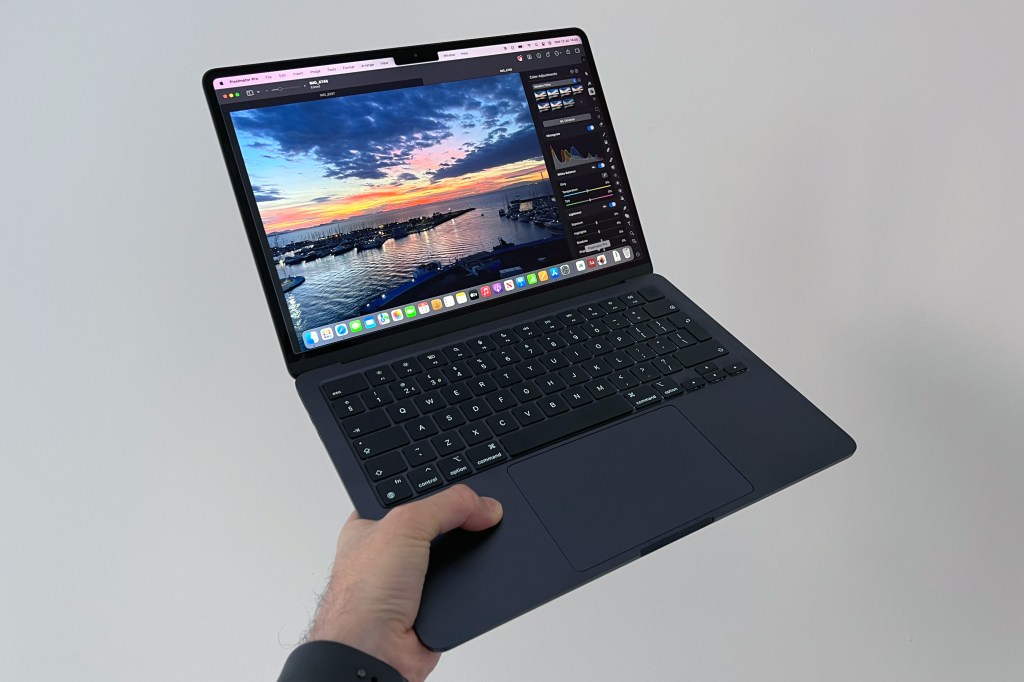
Loads of great hardware
In an eventuality that surprised no-one, Apple released plenty of great hardware in 2022. Stuff duly lobbed five-star gongs at AirPods Pro (2nd gen), iPhone 14 Pro Max, iPhone 14, MacBook Air 13in with M2, iPad Air (5th gen) and Apple Watch SE (2022). Some of those didn’t move things on that much, but nonetheless impressed through Apple’s usual mix of hardware quality and usability.
Apple Watch Ultra
The flagship Apple Watch missed out on Stuff’s top award, but our reviewer nonetheless called it the best adventure-ready Apple Watch and a great all-rounder. It fell short of perfection due to its high price and shorter battery life compared to rivals. And, honestly, the Ultra’s more Apple Watch than most people need. But it was great to see Apple looking at new ways to push the boundaries of wearables.
Dynamic Island
You might want to glare at people who bring up the phrase ‘think different’ regarding Apple, but those folks over at Cupertino sometimes really do have a unique approach. Take Dynamic Island. Other phone makers have tried to minimise screen cut outs. Apple made a virtue of its equivalents, transforming two holes in the display into an animated expand-o-lozenge some folks over on the Android side have been eager to pilfer.
The A16 chip
Android chips are starting to close the gap on Apple – such as with the Snapdragon 8 Gen 2. But that chip’s intended for upcoming phones, whereas the A16’s been in the wild for months. Apple’s integrated nature and eye for power-efficiency yet again made its mobile chip the one to beat in 2022. No-one did. With reported brain drain from Apple’s silicon teams, keeping the momentum going might be tough, mind.
A landscape FaceTime camera
The iPad was originally primarily a portrait device. When Apple finally relented and allowed it to be a sort-of laptop, landscape reigned supreme. No-one told the camera guys, though, meaning in video calls it always looks like you’re staring off to the side, even when you’re paying attention. Which is a long way of saying we were glad to see a landscape FaceTime camera on the 10th-gen iPad.
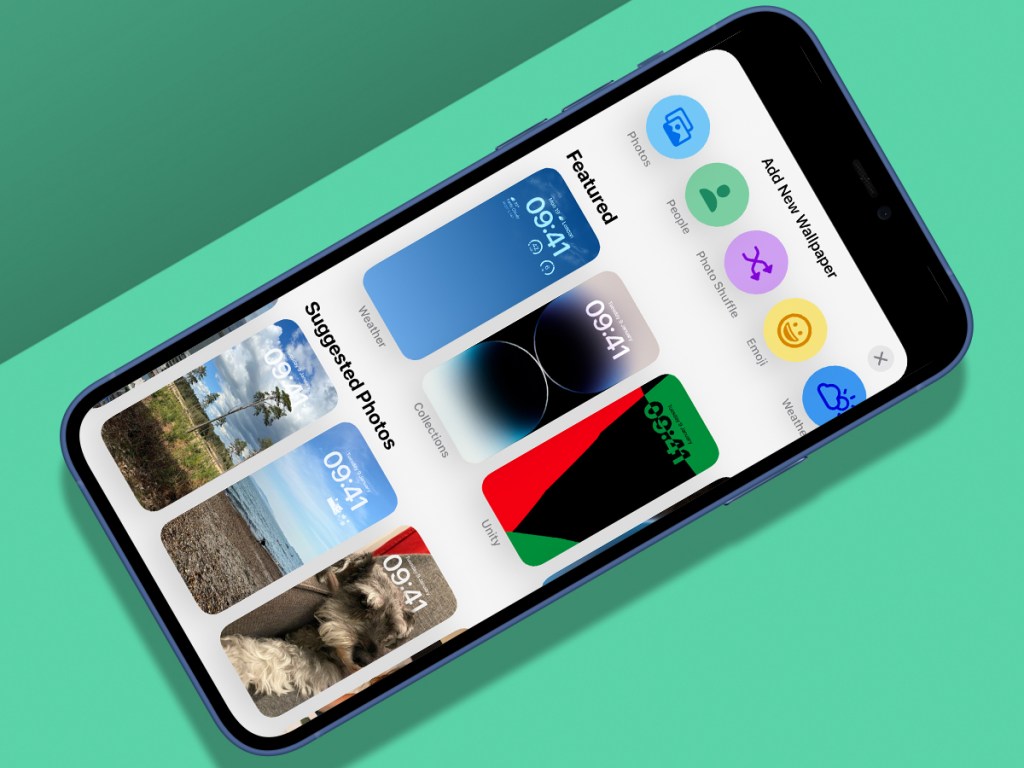
The new iPhone lock screen
Apple likes being in control, hence our surprise when iOS 16 rocked up, letting you customise your Lock Screen. Some griped Apple didn’t go far enough, but we got change where it mattered: photo shuffle wallpaper; widgets; the means for organised types to link Lock Screens to Focuses. Twinned with the always-on display, this one change shook up the iPhone experience in a meaningful way.
Passkeys
This mission to eradicate passwords isn’t all about Apple – but it’s fair to say the company is aggressively pushing for a future where passwords will be all but eliminated. A good thing, given how many people literally use the word ‘password’ to secure accounts and phones. By the end of 2022, every Apple operating system had passkey support baked in. And the company was strongly encouraging devs and services to get on board.
More iCloud encryption
Apple already protected plenty of data with end-to-end encryption, meaning even it couldn’t get at your passwords, Health data and Apple Card transactions. In December, the company added an optional new tier: Advanced Data Protection for iCloud. With this, Photos, iCloud Drive, device back-ups and other data types get end-to-end encryption. (It omits Mail, Contacts and Calendar, which rely on legacy systems.) Take that, hostile governments!
Emergency SOS
Find My is an excellent system for letting loved ones know where you are without bugging everyone with a million text messages. But when you’re beyond standard internet connectivity, it doesn’t work. That’s no good if you, say, get trapped under a boulder in an isolated canyon. With Emergency SOS, iPhones can now (in supported countries) communicate with satellites, alerting contacts and even medical services when necessary.
Apple Arcade
Say what you will about Apple and gaming, but Apple Arcade gets an undeserved bad rep. Sure, folks bristled when Apple abruptly removed some games from the service during 2022. But see also: every broadly equivalent games subscription service. Look beyond that and 2022 ushered in a wealth of cracking titles, old and new; and Apple showed serious clout in securing the mobile exclusive of the new Football Manager.
We also liked:
- Severence on Apple TV proved gripping and horrifying, and benefited from the weekly drop, letting you take in what you’d seen.
- Continuity Camera powered up FaceTime for folks lumbered with Macs sporting sub-standard cameras.
- An iCloud.com redesign finally made it so you could use the site on mobile – and made it better on every other device too.
- Lift subject from background made it a cinch to grab items from photos and dump them elsewhere – including into apps like Sticker Drop.
- Backtrack on Apple Watch made it at least 50% less likely you’d get lost in the wilderness – or at least let you know where you’d been.
The bad
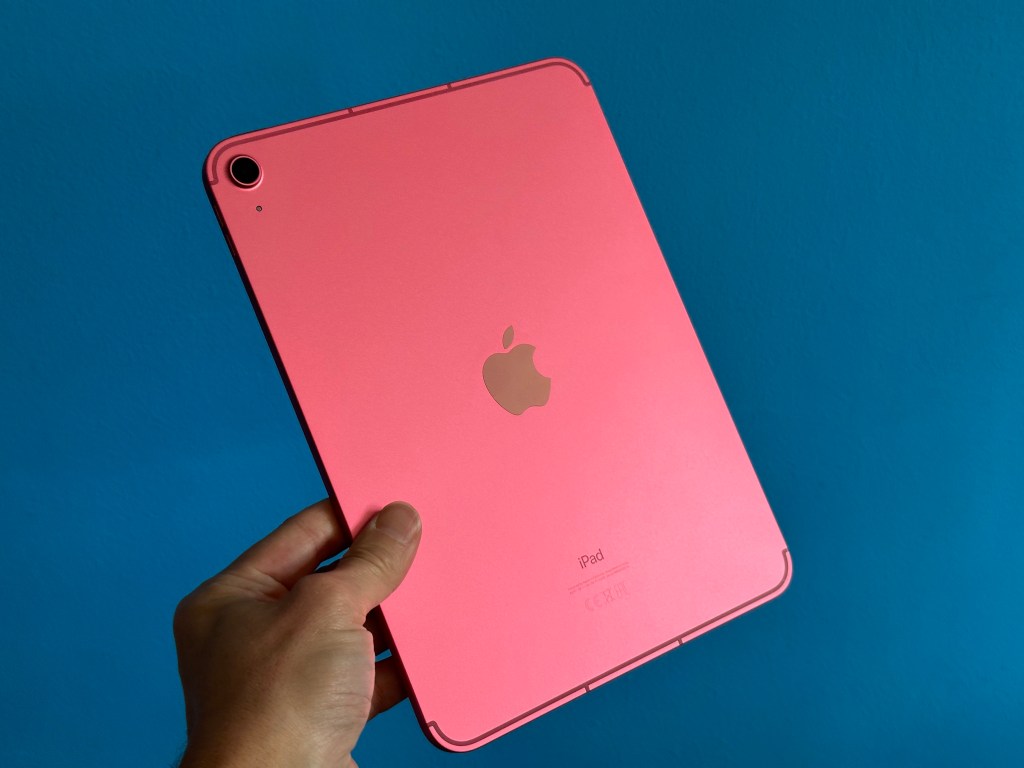
The messy iPad line-up
A new iPad arrived, with that landscape FaceTime camera we love – and a flashy new keyboard with function keys. Yet the keyboard case didn’t work with similarly sized iPads, and the iPad used the old Lightning Apple Pencil despite not having a Lightning connector. Argh! Meanwhile, the new iPad Pro, often used by pros like a laptop, didn’t get the landscape camera, and suffered from delays to pro-oriented iPadOS features. Sigh.
No new Mac Pro
In 2019, Apple wowed with the new Mac Pro. Technically, it is… still the new Mac Pro. It’s not ideal that Apple hasn’t completed its Apple Silicon transition, and rumours now point to some kind of M2 iteration next year. The Mac Studio for now operates as a kind of stop-gap. But Pro users in 2022 no doubt ended the year disappointed that Apple’s flagship Mac remained a years-old Intel machine.
The iPhone 14 getting an A15 chip
Apple spun so fast when announcing this doozy that it briefly powered the entire western seaboard of the USA. But Apple’s September reveal that the A15 powered the new iPhone 14 was a sea change in a bad way. No more would all new iPhones have Apple’s latest mobile chip. Non-Pro models got year-old silicon with a smidgen of added GPU grunt. Apple had best hope the Android mob doesn’t catch up too fast.
Hobbling the iPad’s USB-C
USB-C isn’t just about connectors – it’s about capabilities. With the new iPad 10th-gen, Apple streamlined the former but hobbled the latter, limiting the USB-C port to USB 2 speeds. We’re aware most iPad users won’t hurl colossal documents around. But this nonetheless strikes us as a cynical and flat-out bad move – not least for an iPad design that’s likely to be around for years, during which file sizes will continue to grow.
Apple Studio Display
Almost two years ago, we said: “If 2021 serves up an iMac without the Mac bit, we’ll be very happy indeed.” Perhaps we would have been happy with that back then, but we weren’t so much by 2022. The Apple Studio Display was a real case of ‘be careful what you wish for’. It looked great and had superb Mac integration. But the panel was ageing, the webcam was woeful, and the price-tag was too high.
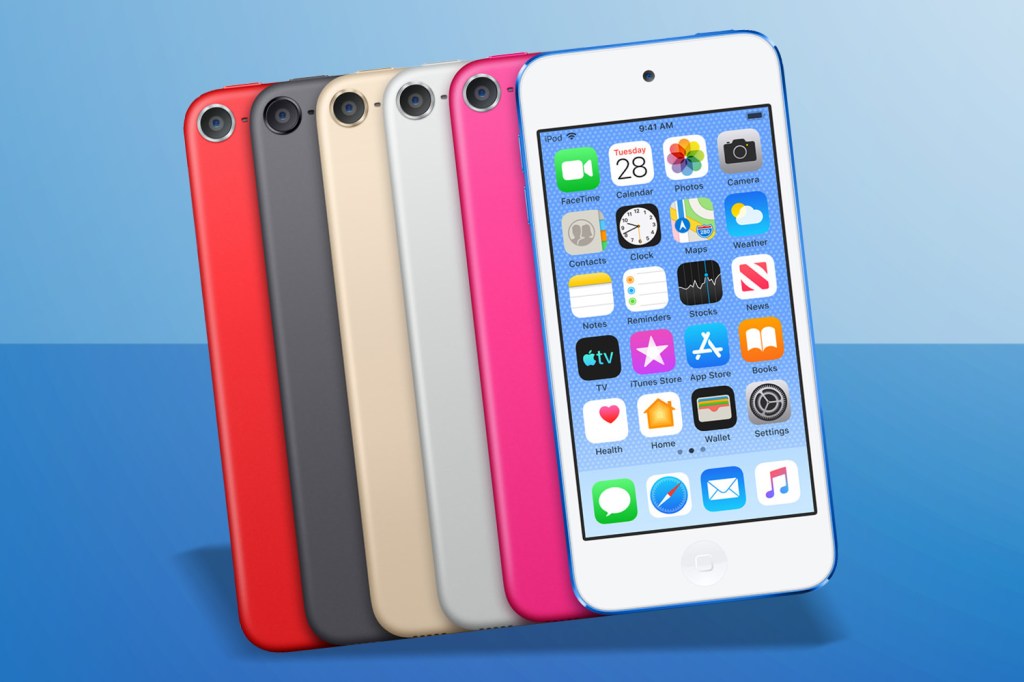
Death of iPod touch
We were sad when Apple killed the original iPod, but its touchscreen successor’s demise offered mixed feelings. On reflection, we’re still OK on Apple killing the existing iPod touch. But we miss the device as a whole, which left a major gap in the iOS line-up. Still, we imagine Apple is happier having you choose between buying kids iPads or iPhones rather than £199 iPhones without the phone part.
iCloud errors
In January, something bad happened to iCloud. Apps failed and froze. Document sync died and many users suffered data loss. Apple said nothing publicly, but weeks later told the odd dev an “underlying issue” had been fixed. Errors persisted throughout the year, such as iCloud not syncing on Mac until Finder or the bird process was restarted. This isn’t good enough for a critical multi-OS component.
App Store ads
Half the point of spending cash on Apple kit is for a premium experience. Yet Apple increasingly thinks it can be 25% of a Google, adding adverts that make you the product. In October, a nadir: devs discovered ads inside App Store app pages. These included gambling ads on pages for apps designed to help people quit gambling. Apple quickly ditched those specific offenders – but other ads remain.
The slow death of Dark Sky
Dark Sky’s days were numbered after Apple acquired it in 2020. 2022 brought this home. In June, a blog post stated the app would be gone at year’s end – and the website by March 2023. We’d love to see Apple rebrand Dark Sky dot net as Apple Weather, but with Apple Maps being a marketing site rather than an online service, we suspect it’s a case of ‘outlook: not sunny’.
Apple killing off apps – again
Here we go again. Back in 2017, Apple nuked countless iOS apps and games, when support for 32-bit titles ended. During 2022, developers were suddenly informed their apps would be delisted if they’d not been updated for several years. Some popular games got away with it, making indies fume they were being singled out – despite lacking the resources to take on meaningless updates. As ever, the opaque nature of Apple communications didn’t help.
We also didn’t like:
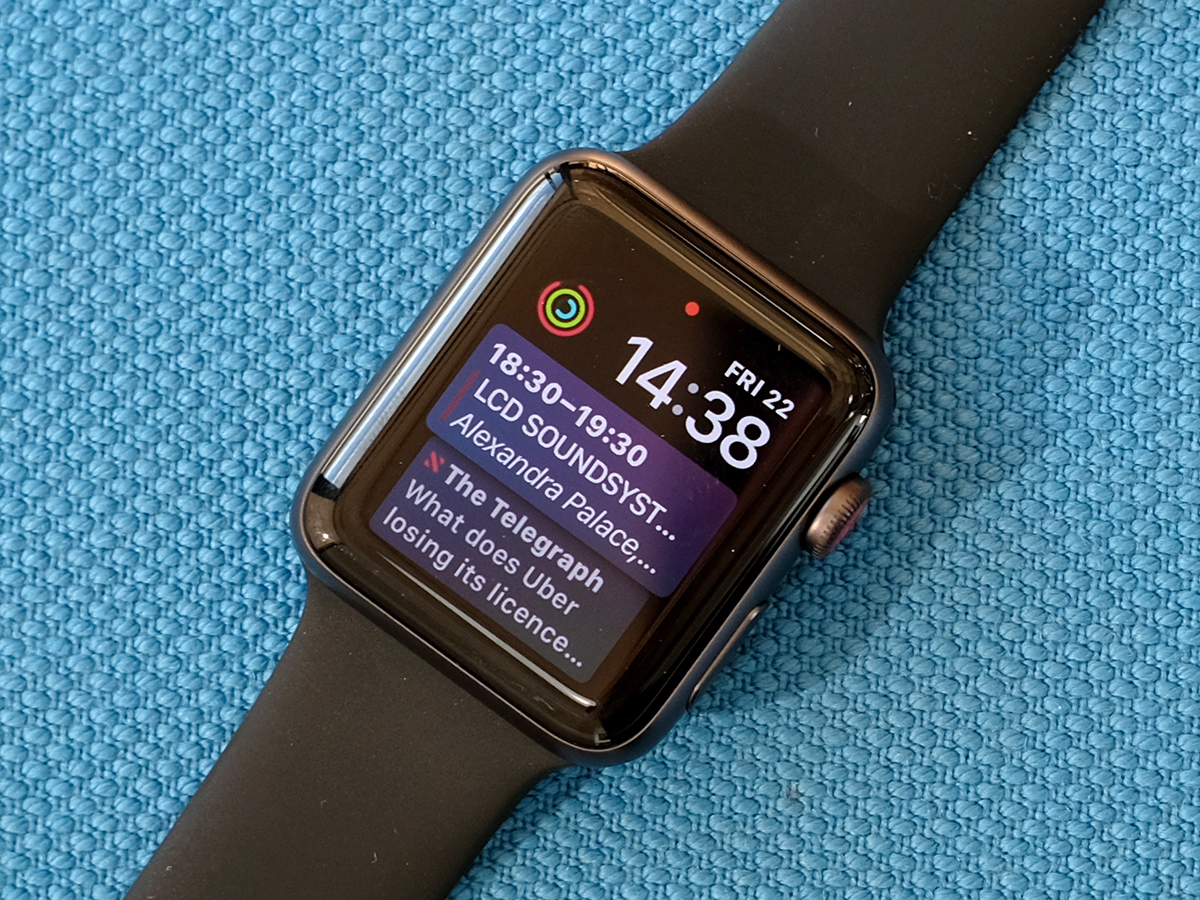
- Apple Watch Series 3 sticking around until September – disgraceful, given that Apple knew it wouldn’t run watchOS 9.
- Apple services price hikes, which – despite our Severance love – overvalues Apple TV+ and makes all of Apple One seem… expensive.
- Mac Studio being noisy, or at least far from silent – a big surprise after years of whisper-quiet Macs.
- Apple’s passive-aggressive self-service repair programme that we’re half surprised didn’t include an Apple technician squeezed into the massive rental kit cases.
- Crash detection being weird and wonderful, rather than just the latter – it was triggered when people went skiing or on (non-crashy) rollercoasters.
The karaoke
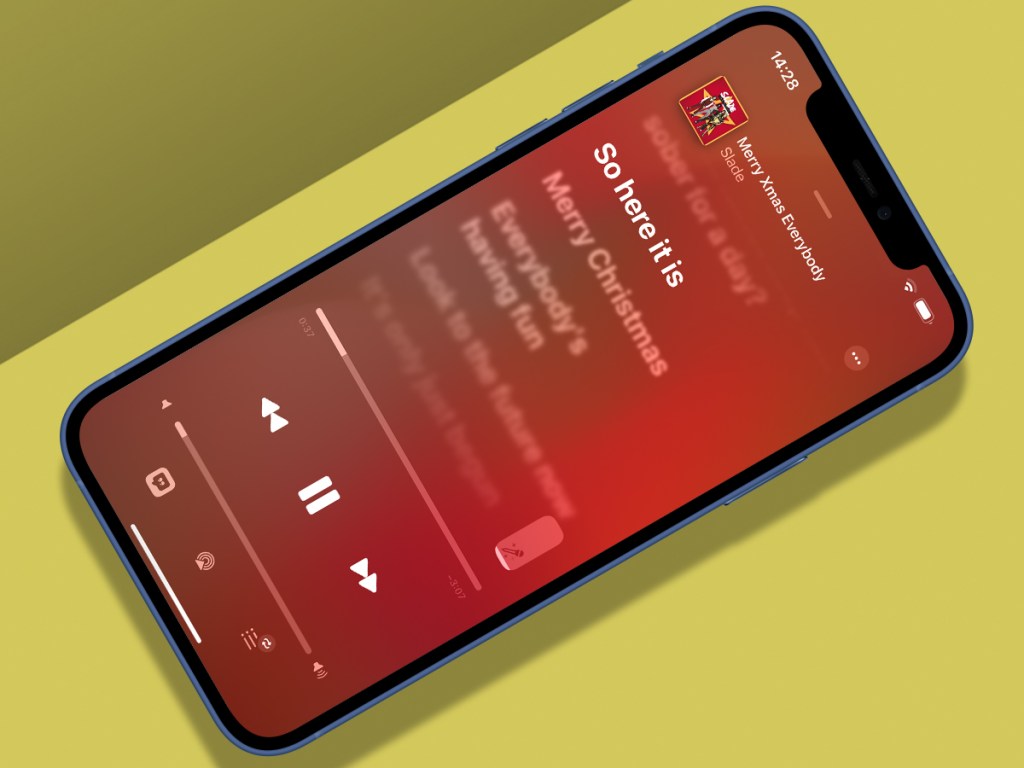
Your own personal X-Factor
Apple has form in eradicating swathes of tech – to the degree ‘Sherlocking’ became a term. This refers to the company rendering third-party search tool Watson redundant by integrating Sherlock – a pre-OS X Spotlight. This December, Apple made the entire karaoke industry shake (but not rattle and roll) in terror through letting you remove vocals on millions of Apple Music tracks. You can now bellow your own version of everything from Beyonce to Blur over the top – until everyone in the immediate vicinity demands you stop.
